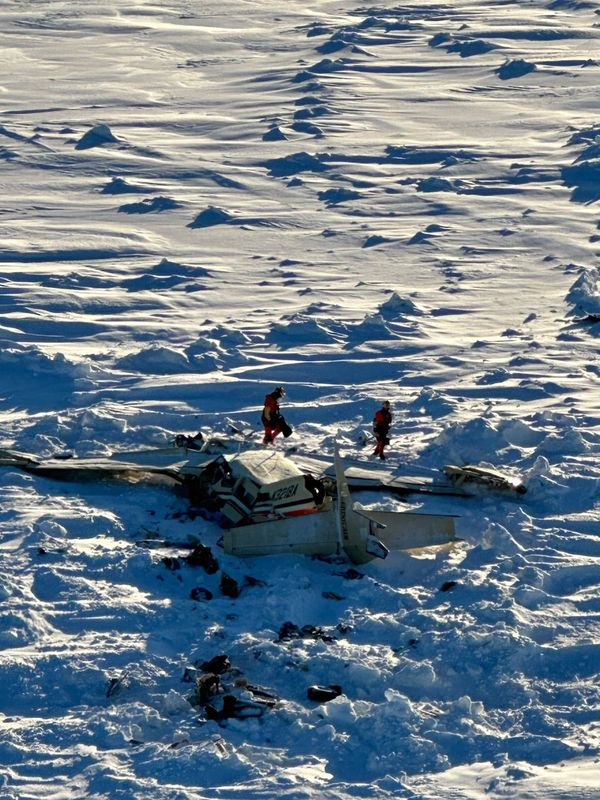
The terrible events in southern Israel last weekend defy comprehension. That people can be so cruel beggars belief. The terrorist attacks by young Palestinians directed by Hamas in Gaza and trained and armed by Iran were an abomination for which there is no possible excuse. No political cause, no faith, no principle justifies such butchery, such inhumanity. No words can express the immense pain and suffering visited upon the Jewish people in Israel and beyond. Their grief is our grief. We stand with them.
This unprecedented outrage and its consequences look likely to permanently change Israel and the Middle East. Israeli feelings of horror and revulsion have quickly turned to anger, bringing calls to wipe Hamas “off the face of the earth”. Israel’s political and military leadership, unforgivably caught off-guard, is now battling to regain the trust of the nation. Prime minister Benjamin Netanyahu talks emotionally and not entirely convincingly of creating a “new reality” in Gaza, of ensuring terrorists never again threaten Israel’s people.
The sentiment is understandable. But it raises an age-old question: how may evil be defeated without committing more and even greater evil?
Even at this moment of maximum trauma, Israelis must understand that the collective punishment of Palestinian civilians, contrary to international law, will not produce the security they crave. The enforced evacuation of 1.1 million people and a ground invasion of Gaza will bring neither safety nor peace. As US president Joe Biden says, democracies must hold themselves to a higher standard – or else descend to the squalid level of the terrorists. The UN warns that a humanitarian calamity looms. That will entail more misery, more destruction, more radicalisation – and an indefinite perpetuation of violence.
This is not the moment to charge in recklessly and vengefully. A week after the massacres, this is the time to pause and think things through. For sure, Hamas must be degraded and defanged. But how, realistically, is this to be achieved? Random mayhem and untargeted attrition are no answer. It’s time to secure safe zones in southern Gaza and humanitarian corridors through which essential aid may pass and people, if they wish, may leave. It’s time to open Gaza’s southern border and give Egypt help with any refugee influx.
Above all, it’s time to call a halt to the killing of Palestinians behind whom the Hamas gunmen cower as Israeli shells and missiles rain down. About 2,200 civilians have already died, Palestinian health officials say, one third of them children. Many more are wounded, but the health system is overwhelmed. Food, water and fuel supplies are deliberately disrupted. Thousands are fleeing south in what some call a “second Nakba”, recalling the 1948 exodus. But many refuse to go, which is their right. Fearful families, their homes smashed, have nowhere to hide: 400,000 people are displaced. Their agony is our agony. We stand with them.
A pause – a cessation of violence, even if temporary, better still a truce or ceasefire – is vital if the plight of more than 120 hostages seized by Hamas is to be humanely resolved. Necessary, too, is concerted international diplomatic pressure on Iran, on Hamas’s political leaders in Doha to halt rocket and other attacks, and on their Qatari hosts to explain why they continue to allow the group to freely operate there. One day, Ismail Haniyeh, the Hamas chief, and his military commanders will face justice. A reckoning with Iran is long overdue. But right now, preventing further loss of life is the more pressing priority.
None of this detracts in any way from Israel’s legal right to defend itself militarily. But again, calm heads are required. A full-scale ground operation would be highly hazardous for all. It must be conducted with proper regard to civilian safety and limited in scope and duration. Protracted, street-by-street urban warfare against entrenched Hamas positions, booby traps and ambushes is a nightmare Israel’s army has previously sought to avoid, principally because it is unlikely to succeed. Dealing a body blow to Hamas is feasible. Destroying it entirely is not. To prevail, Israel must take it slow.
Even at this dreadful juncture, there is reason to be grateful that a wider escalation with Hezbollah on the Lebanese border has so far been largely avoided. The West Bank, though tense and violent, has not exploded. Yet all this could change in a moment. The US and Britain have moved military assets to the Mediterranean the better to deter Iran and its proxies. That’s sensible. Arab leaders, though alarmed about Gaza, have shown no interest in stoking the fire. Most detest Hamas. That’s encouraging.
But the situation is delicately balanced. Around the world, rising numbers of antisemitic incidents, including, shamefully, in Britain, feed a sense of global crisis. And it would hardly be surprising if a discredited Netanyahu, whose serial misjudgments fuelled this crisis, tried to rescue his personal reputation with an ill-considered, disproportionate military response. Some believe that is already under way. In the longer term, the prime minister and his far-right coalition allies must be called to account for Israel’s worst military and intelligence failure in 50 years.
Israel will survive. Hamas will be defeated. It will take time. More pain is in prospect. And the impact on Israeli society will be lasting. The respected Israeli author David Grossman worries that his country will be permanently changed for the worse, will emerge from this existential trial “more rightwing, more militant, more racist”. Yet there is always a choice. Perhaps the sheer, brutal shock of this abomination will finally, decisively convince the vast peaceful majority of Israelis and Palestinians to reject the pedlars of hate and embrace an era of sovereign co-existence under new leaders.
Such an outcome, though it seems distant now, would be the best possible tribute to the dead.
Do you have an opinion on the issues raised in this article? If you would like to submit a letter of up to 250 words to be considered for publication, email it to us at observer.letters@observer.co.uk







